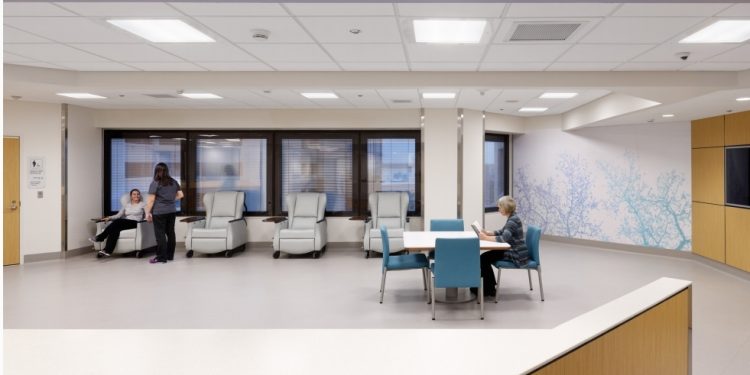Introduction
Access to behavioral health facilities is crucial for individuals seeking mental health support and treatment across the United States. Whether you or a loved one is facing mental health challenges, knowing how to locate these facilities can be a key step in obtaining the care needed. This article aims to provide a comprehensive guide to locating behavioral health facilities across the US, ensuring that individuals can access the necessary services to support their mental well-being.
Understanding the Need
Mental health is an integral component of overall well-being, and seeking professional help is an essential step in addressing mental health concerns. According to the National Institute of Mental Health (NIMH), approximately one in five adults in the United States experiences mental illness in a given year. Recognizing the need for accessible and effective mental health care, it becomes imperative to know how to locate behavioral health facilities.
Locating Behavioral Health Facilities Across the US
When it comes to finding behavioral health facilities, various resources and methods can be employed to streamline the process. Here are some effective ways to locate these facilities:
Online Directories and Databases:
Utilize online directories and databases that list behavioral health facilities across the United States. Websites like the Substance Abuse and Mental Health Services Administration (SAMHSA) provide comprehensive databases that allow users to search for mental health services based on location.
Health Insurance Provider Networks:
Check with your health insurance provider to understand the behavioral health facilities covered under your plan. Insurance companies often have networks of mental health professionals and facilities, making it easier for individuals to access care within their coverage.
Local Mental Health Associations:
Contact local mental health associations and organizations in your community. They can provide information about nearby behavioral health facilities, support groups, and resources available to those in need.
Primary Care Physicians and Referrals:
Consult your primary care physician for recommendations and referrals to behavioral health facilities. Primary care providers often have connections with mental health professionals and can guide you to appropriate resources.
Community Mental Health Centers:
Explore community mental health centers, which are dedicated to providing affordable mental health services. These centers are scattered across the country and offer a range of mental health programs.
Telehealth Services:
In the digital age, many behavioral health facilities offer telehealth services. This allows individuals to access mental health care remotely, making it a convenient option for those who may face barriers to in-person visits.
What Is BCBS of Oklahoma?
Blue Cross Blue Shield of Oklahoma (BCBSOK) is a health insurance provider that operates in the state of Oklahoma, USA. It is part of the Blue Cross Blue Shield Association, which is a federation of 36 separate health insurance organizations that collectively provide coverage to millions of Americans.
BCBSOK offers a range of health insurance plans to individuals, families, and businesses in Oklahoma. These plans typically cover a variety of healthcare services, including hospital stays, doctor visits, prescription medications, preventive care, and more. The specific coverage details can vary depending on the specific plan you choose.
As with any health insurance provider, BCBSOK may have different plans with varying levels of coverage and benefits. If you have a BCBSOK insurance plan, it’s important to review your policy documents, contact the customer service department, or check their official website to understand the details of your coverage, including any specific services, treatments, or facilities covered under your plan.
Addiction Treatment Process in Oklahoma
The addiction treatment process in Oklahoma, like in many other places, typically follows a comprehensive and individualized approach to address the unique needs of each person seeking recovery. While specific programs and services may vary, the general steps in addiction treatment often include the following:
Assessment and Evaluation:
- Individuals seeking addiction treatment undergo a thorough assessment to determine the extent of their substance use disorder, mental health status, and any co-occurring disorders.
- Healthcare professionals use this information to develop a personalized treatment plan.
Detoxification:
- For those with physical dependence on substances, a medically supervised detoxification process may be necessary to manage withdrawal symptoms.
- Detoxification is often the first step before entering a formal treatment program.
Inpatient or Residential Treatment:
- Some individuals may enter an inpatient or residential treatment program, where they stay in a facility for a specific period.
- This setting provides a structured environment, 24/7 support, and a variety of therapeutic interventions.
Outpatient Treatment:
- Outpatient programs allow individuals to live at home while attending scheduled therapy sessions and support group meetings.
- This option is suitable for those with a stable home environment and less severe addiction.
Therapy and Counseling:
- Behavioral therapies, such as cognitive-behavioral therapy (CBT), motivational interviewing, and dialectical behavior therapy (DBT), are commonly used to address underlying issues and promote behavioral change.
Medication-Assisted Treatment (MAT):
- Some individuals may benefit from medications that help reduce cravings and withdrawal symptoms. Medications are often used in conjunction with counseling and therapy.
Support Groups:
- Participation in support groups like Alcoholics Anonymous (AA) or Narcotics Anonymous (NA) is encouraged to provide ongoing peer support and a sense of community.
Aftercare and Continuing Support:
- After completing a formal treatment program, individuals are often encouraged to participate in aftercare programs, which may include ongoing therapy, support groups, and other resources to maintain sobriety.
Dual Diagnosis Treatment:
- For individuals with co-occurring mental health disorders, integrated treatment that addresses both substance use and mental health issues is crucial.
Reintegration and Life Skills:
- Treatment programs often focus on equipping individuals with the skills and strategies needed to reintegrate into society successfully, including employment and social skills.
Holistic Approaches:
- Some programs incorporate holistic approaches, such as mindfulness, yoga, and art therapy, to address overall well-being.
It’s important to note that the availability of specific services and the treatment process may vary between different treatment centers in Oklahoma. Individuals seeking addiction treatment, including finding rehab using BCBS insurance from OK state, are encouraged to reach out to local resources, treatment centers, or mental health professionals for more personalized information and assistance.
Conclusion:
Locating behavioral health facilities across the United States is a vital step in addressing mental health concerns and seeking the necessary support and treatment. By utilizing online resources, insurance networks, community organizations, and healthcare professionals, individuals can access the care they need to promote mental well-being. The anchor text provided within this article serves as a guide, offering readers a direct link to valuable information on locating behavioral health facilities across the US.


 Home
Home









